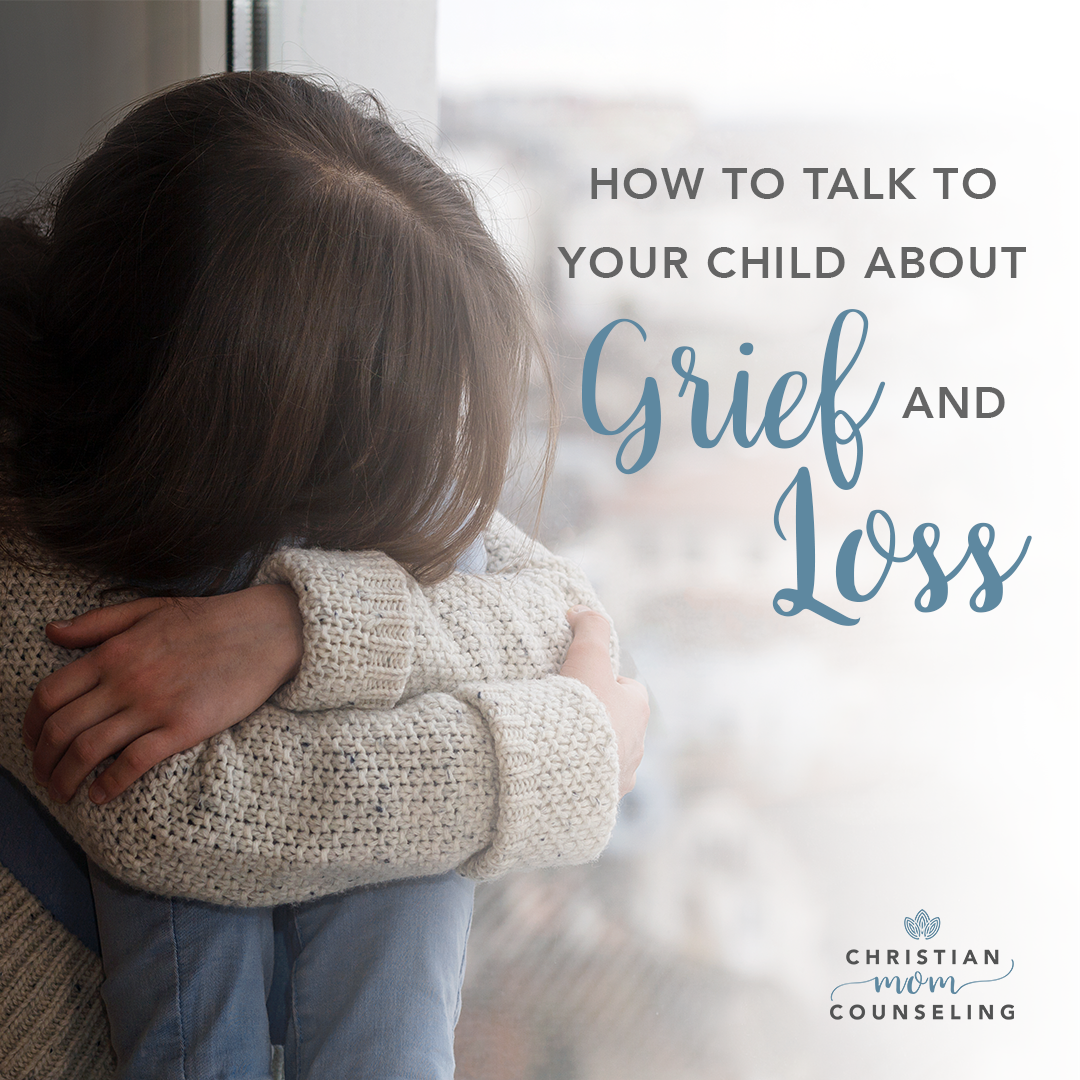If you tuned in for my last book review then you already know that this question comes up quite often: “How do I begin a conversation about death and grief with my children?” To make matters worse adults are often faced with this question while they are experiencing their own tangled emotions of grief and loss. I spent two years out of grad school working with Hospice patients and their families. During this time I learned a lot about how to have these conversations, but they are in no way easy. Whatever conversation you are having, bathe it in compassion and empathy.

To preface, I do not have all the answers. I will also clarify that I recognize many people hold various views of life and death that are made present during these hard conversations. My points presented below come from the tenets of Christianity and thus will reflect those theological points. I recommend that every parent reflect on this topic and how they will have these discussions ahead of time. If there is one thing you take from this- parents will always benefit from considering their own thoughts, beliefs and how they will have these difficult conversations ahead of time. So if this finds you in a season where grief is absent then cherish it, and prepare for the conversations ahead. But, if this finds you in a difficult time, then I hope these basic tips provide some guidance during your grief.
Lastly, there is a lot I could say or elaborate on each of these items. My main point is to help you begin brainstorming the conversation that you will have. Some questions may need to be answered after you’ve given them long thoughts and or prayers. There is no shame in postponing a conversation until you feel ready.
Keep Terminology Simple
The phrase that I often use and recommend is “their body stopped working”. Children need verbiage that makes sense developmentally. So keeping the description of death to simple, easy to understand language will help a child understand the bodily death on their developmental level.
Avoid Confusing Language
Children can be very logical, therefore, if we aren’t careful phrases that we use to “soften” the blow of death can be very confusing. Also, some of these phrases may very well be true, so my encouragement when having these conversations is to clarify in order to dispel any misunderstandings or fears. Here is a list of phrases that can sometimes be confusing or anxiety provoking for kiddos. Keep in mind too that if you are or have been a culprit of saying any of these phrases, there is grace! Often these phrases come out when we don’t know what else to say, we’re at a loss for words, or we’re just trying to help. Your motivation is pure, so give yourself grace.
“Heaven gained another angel”. This is often a sweet thing that people say in consolation after death. This phrase, though sweet sounding, isn’t true. People do not become angels. They are separate beings. Telling young children this can often lead to confusion about death, life, and spiritual beings.
“They’re asleep”. OK so this one is a little tricky because depending on your theological stance this one is worth a good conversation. So, let me just say this, if this is your belief, then just be sure to explain it further. My caution is not in the belief- it’s in the phrase alone. I’ve worked with children who live in fear of “falling asleep” and not waking up because their loved one is “asleep”. So again, this one just requires a little more of a conversation.
“They are visiting heaven”. Make it clear that one cannot go to heaven to visit and then return to live with their loved ones. Children may expect to see their loved ones again in this life.
“It was an accident”. Despite the truth in this one, make sure to have a conversation so that children are not anxious about making mistakes and having an “accident” that could lead to their death.
Prepare, Prepare, Prepare
Often in our own grief we forget how traumatizing it can be for children who have never experienced death and grief. So we forget to tell them what to expect, how it will be, or what they may see. If a child goes to a hospital to see a loved one who is passing away, attempt to prepare them as much as possible as to what to expect. Same goes for if a child goes to a funeral home, or if they see their loved one post-death. It is so important for them to know what it may be like.
They may not look like themselves.
Their skin may appear to be a different shade than before.
Their breathing may be slower/ more rapid.
They may not eat.
They may not respond to them (but they can still talk to them).
They may have tubes/ cords attached to them.
Etc.
Remember every child is different.
Note in the previous point I said “if” several times. It’s important to remember that every child is different in what they need or can handle. Don’t force a child to do something or see something that may make their grief more compound. On the other hand if a child is adamant that they want or need something (ex. To go to the hospital) then prepare them but don’t underestimate their ability to handle it. Be in tune with your child and have realistic conversations about what they need or you feel is appropriate.
Again, these are just things to consider and again (ad nauseam) just have conversations. Conversations may not go perfect, they may have more questions, but the conversations can continue and you can always clarify. Above all, provide love, warmth, empathy, and security to the best of your ability.
Considering Tele-therapy?
Christian Mom Counseling provides professional counseling via virtual teletherapy for women located in the state of North Carolina. We utilize real-time video to have sessions with women all over the state of NC. There are multiple reasons why and here are a few:
- As a mom of three, I understand the difficulty of scheduling and making time for myself. I’ve found that many other mothers who are in the early childhood stage of motherhood find scheduling online sessions easier and more feasible. Save time on travel and sitters and schedule online.
- You can attend your session even if you are sick without the risk of exposing anyone else!
- It’s a good option if you live in a remote area that makes finding a counselor close to you difficult.
- My primary specialty is faith-based Christian Counseling. That being said, many of my clients have commented on their inability to find counselors who claim to be Christian and include faith as a major part of the client’s healing and recovery.
- Virtual Counseling is here to stay and studies have shown that in many cases tele-therapy can be equally as effective. You will always hear me recommend in person interpersonal connections (family, friends, church, small groups, and other forms of deep relationships with others) but online counseling can provide many of the same advantages of in-person counseling.
If you’ve been wondering if tele-therapy would be a good fit I’d love to hear from you! Click the button below to form to schedule a free phone consultation:


